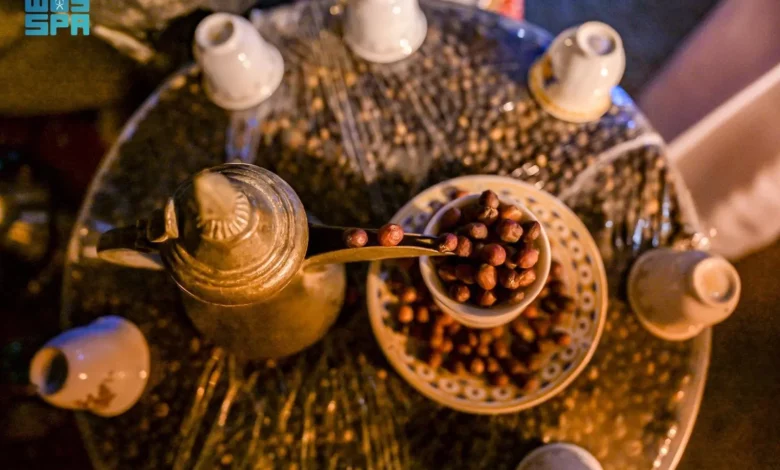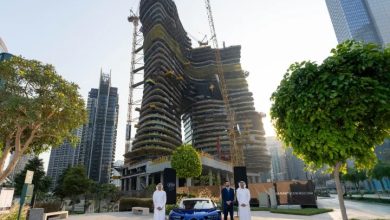
Baha – Asdaf News:
The scent of coffee trees permeates the air in the highlands of Al-Baha, on the Shada Mountains. Shada coffee, called after the two majestic mountains, is made from a unique variety of coffee beans that are produced by the coffee shrubs on Shada Al-Asfal (Lower Shada) mountain climbing to embrace their counterparts on Shada Al-Ala (Upper Shada) mountain.
These mountains are home to farms with over 54,000 coffee seedlings, producing over 12 tonnes of coffee a year. Statistics from the Al-Baha branch of the Ministry of Environment, Water, and Agriculture show that about 280 farmers are working in this industry.
The twin mountains, part of a mountain range amidst a series of low plains and valleys, are the highest peaks in the Tihama plain. Shada Al-Ala reaches an elevation of 2,200 meters, while Shada Al-Asfal stands at around 1,500 meters.
Agriculture on these mountains extends beyond coffee, as the locals cultivate various trees, yet their primary focus remains on coffee, which is the prominent crop of the region.
Remarkable methods are used for the care of coffee trees by the locals. The plants are watered by storing rainwater in hollow rocks hewn to resemble water tanks, as explained by farmer Ali Al-Ghamdi, owner of a farm on Shada Al-Asfal mountain.
His farm boasts around 700 Shada coffee trees. The plants receive meticulous care, from the initial stages of planting to drying and processing coffee beans, and production is abundant, he said.
The price of Shada coffee ranges between SAR100 and SAR150 per kilogram.
Adjacent to his farm, there is a cave designed to serve as a museum for Shada coffee. It contains ample quantities of coffee alongside other produce, such as bananas, mangoes, lemons, and various tools used for coffee preparation.
From Shada Al-Asfal to Shada Al-Ala, the long-standing trees, some older than 150 years, still yield coffee. Some 300 of them are carefully tended by farmer Abdullah Al-Shadawi, who continues his forefathers’ occupation. According to him, Shada coffee farms are greatly helped by the fertile soil, which explains the amount and quality of yield. Al-Ala also has around 3,000 seedlings.
Director of the Ministry of Environment, Water, and Agriculture branch in Al-Baha region Fahad Al-Zahrani said that the ministry has great interest in agriculture in the area, including the cultivation of Shada coffee. The ministry’s branch in the region works to provide all necessary facilities and support to farmers in order to help coffee production grow, he said.
According to Al-Zahrani, around 150 farms on Shada Al-Asfal mountain have 24,000 coffee trees that yield 5 tons annually. On Shada Al-Ala mountain, there are about 130 farms with 30,000 coffee trees that produce 7 tons per year.
There are 125 agricultural terrace reservoirs, 83 in Shada Al-Asfal and 42 in Shada Al-Ala.
Al-Zahrani said that the ministry distributes around 80 liters of insecticides annually to farmers, and that the reclamation project, of agricultural terraces, on both mountains has benefited 93 farmers.
The ministry has established the Coffee City project in the north of Al-Baha city, covering an area of 1.6 million square meters, aiming to provide 1,000 job opportunities and cultivate 300,000 coffee trees.–SPA




